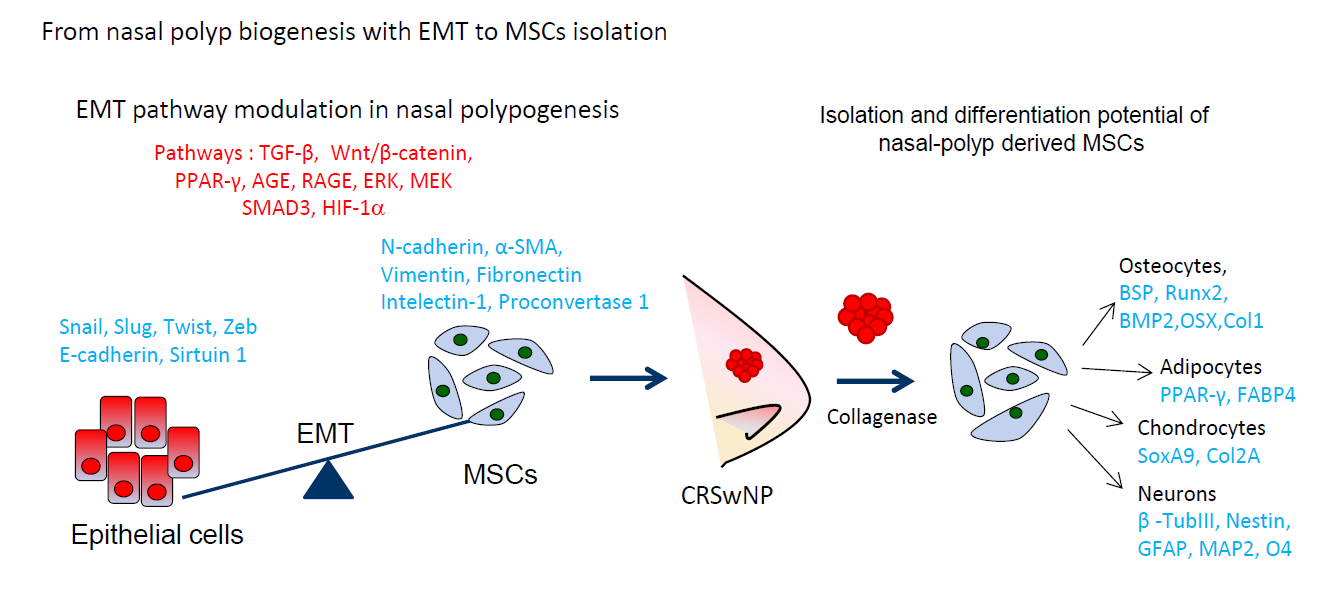Chronic rhinosinusitis is a common inflammatory disease of paranasal sinuses, which causes rhinorrhea, nasal congestion and hyposmia. The genetic predisposition or the exposure to irritants can sustain the inflammatory response and the development of nasal polyposis. Nasal polyps are benign and teardrop-shaped growths that project in the nasal cavities and originate from the ethmoid sinuses. This inflammatory process is associated with high expression of IL-5 cytokine and infiltration of eosinophils. Humanized monoclonal antibodies targeting IL-5 or its receptor, represent a therapeutic strategy in the treatment of nasal polyposis in combination with corticosteroids. The molecular pathogenesis of nasal polyps in CRS patients is associated to the epithelial-mesenchymal transition (EMT), a process in which epithelial cells lose their typical phenotype acquiring a mesenchymal phenotype. TGFβ/SMAD, ERK, and Wnt/β-catenin pathways are altered in EMT during the nasal tissue remodeling. miRNA and inhibitor molecules targeting these altered signaling pathways are able to interfere with EMT; which could lead to alternative therapies. Nasal polyps are an alternative source of mesenchymal stem cells which can be easily isolated from surgical biopsies. A molecular understanding of the biology of PO-MSCs will contribute to delineating inflammatory process underlying the development of nasal polyps.

